Thousands of recipes online are more of the same—the author gives context as to when they used the recipe, provides some anecdotal advice, and finally, shares the recipe’s ingredients and steps.
This content is so similar from one site to another that I often can’t recall where I found a recipe. But when I ran into Tablespoon by General Mills, I was struck by its fresh approach to a content recipe (pun intended) that’s been the same for years.
Tablespoon curates one of the largest collections of recipes online and finds attention-grabbing and relatable ways to group them for specific audiences, like its “18 Make-Ahead Breakfasts for Non-Morning People" list. It’s a fun approach to an otherwise overdone type of content—a strategy that many other brands producing food-related content could follow.
Over the past decade, brands have increasingly turned to editorial content as an innovative way to help build credibility and forge meaningful connections with audiences. Done well, valuable and unbiased information presented outside of traditional advertising channels can help demonstrate a company's expertise. It allows brands to join relevant conversations and become a trusted resource for the target customers.
In this article, we'll take a look at how brands use well-crafted content to stand out from the noise.
How to use editorial content to show your expertise, earn trust, and drive sales
To effectively use editorial content to showcase expertise and earn everlasting trust from your target market, you need to understand some content strategies that will raise the bar.
Separate editorial content from advertorials
Editorial content should include credible sources, such as research studies, statistics from reputable organizations, or expert opinions, to back up any claims. People want to know that the information is not just someone’s opinion, but instead, supported by facts.
Your primary focus should be on creating helpful, interesting articles that meet the needs and interests of your readers. Give them solutions to their problems, teach them new skills, or share perspectives they may find valuable. Provide value that goes beyond promotion.
If you also feature sponsored content, label it clearly so there's no confusion between that and your objective pieces. But let your sponsored content speak for itself, too—incorporate useful information even if it is an ad. Your readers will appreciate transparency and quality over stealth advertising approaches that erode trust over time.
The Lyft blog clearly distinguishes between editorial articles and sponsored content through labeling and formatting. Posts under sections such as "Data," "Travel," and "Society" read like typical editorial content, while the "Driver blog" and videos produced by Rev have a more promotional tone.
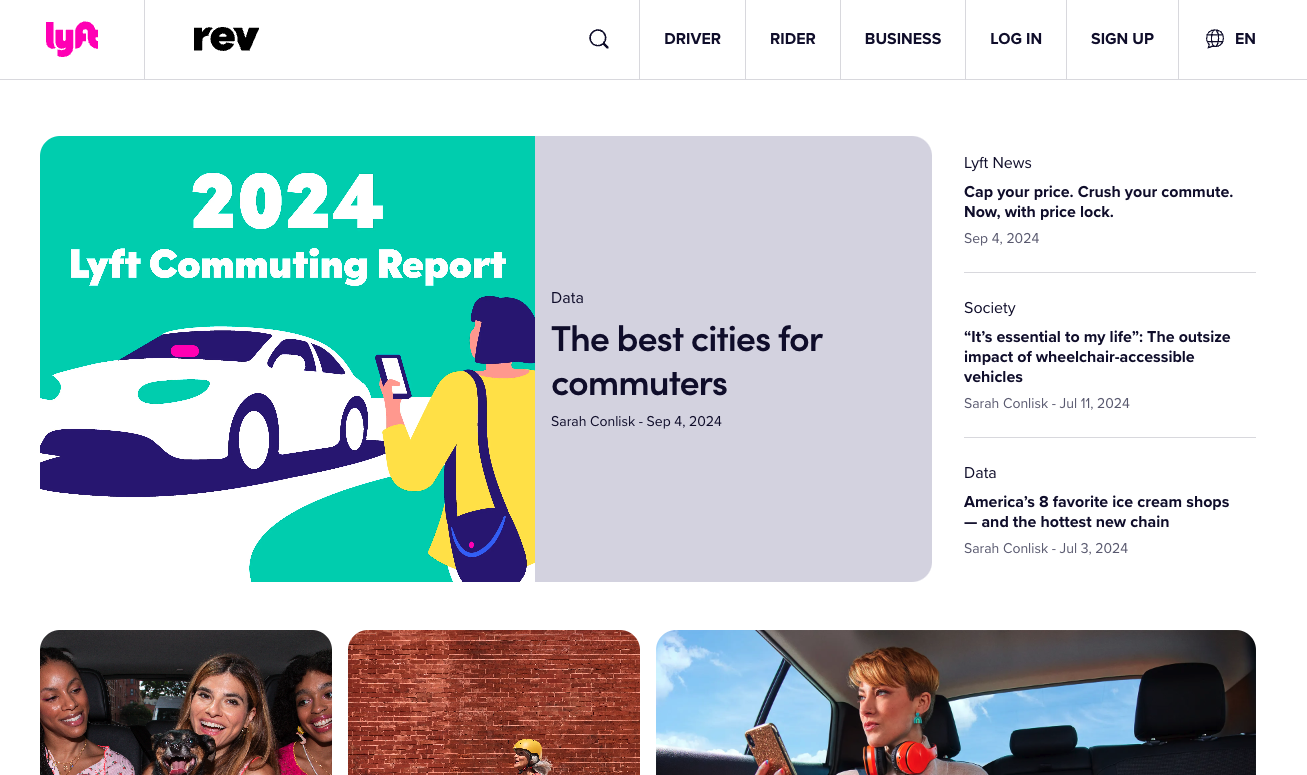
Thought leadership through subject matter expertise
Demonstrating your deep knowledge and expertise on important topics can help build your brand authority and industry leadership. Share thorough, well-researched content that shows how much you know about the issues impacting your customers.
Dive deep—don't just scratch the surface. Cover subjects in an in-depth, insightful way that only comes from true subject matter expertise. Position your brand as the go-to knowledgeable source people can rely on.
Focus on topics that will truly help and interest your target audience. Make the content relevant and valuable to their real needs and challenges. It should feel explicitly tailored for them. Also, make sure everything you publish aligns with and showcases your unique value as a brand. Highlight what specifically sets you apart through the perspectives and insights in your content.
Ask Experian is a great example. Experian has positioned itself as the go-to source for answers on credit reports, scores, and identity protection.
Meanwhile, Hers’ content shows the company understands that women's health is about more than doctor visits—it's also about emotional and psychological well-being.
Realtor.com further cements its authority by using the vast amount of real estate information in its databases to analyze trends and share insights invaluable for industry professionals. Regularly publishing proprietary research positions the brand as a thought leader that real estate agents and home buyers and sellers can rely on.
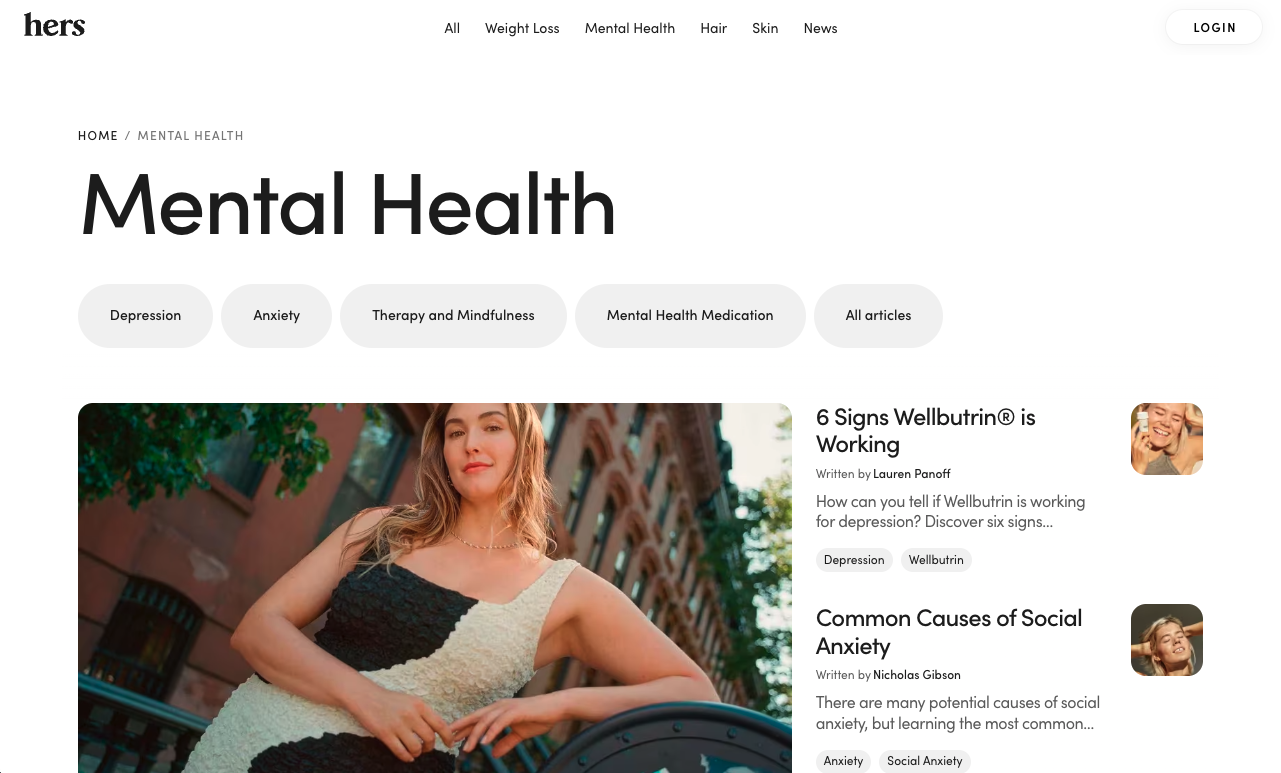
Credible third-party validation
Get media exposure in local and well-known news outlets and publications through byline articles, interviews, or features related to your brand or products. When respected journalists and media companies choose to cover you or republish your content, it communicates to readers your brand is credible.
But media outreach is time-consuming, expensive, and slow, and that’s where Stacker may be able to help. As the first content distribution platform built for earned reach, it helps high-quality editorial content from brands reach thousands of publishers in a matter of minutes. Publishers can republish your content to their site in just a few clicks, meaning your stories will feature in the main editorial section instead of a sponsored area. With a high potential for wide distribution and reach, this setup enables brands to build awareness and authority at scale instead of being limited to owned channels.
At the end of the day, letting quality work shine through other respected voices is more effective marketing than self-promotion alone.
Authentic storytelling
People bond with brands that tap into their hearts and souls. Editorial content allows companies to share what they offer and what they stand for—their mission, their values, and why they do what they do beyond profit.
Sharing real stories from the people behind a brand can create an instant sense of familiarity and rapport with your target market. Brand content is the perfect vehicle for highlighting how your products or services relate to people's lived experiences, struggles, and wins.
If you can craft narratives that feel authentic and elicit an emotional response from the reader, that's a relationship-building triumph.
We all know that Mastercard is well known for handling payments. But did you also know that they have a whole division focused on advisory services and economic research?
For example, Mastercard’s data-driven article, "An uneven commute," immediately grabs the reader with a relatable theme many have experienced—navigating difficult commutes to and from work. Rather than dryly listing transportation statistics, it paints a picture many can envision of traffic jams and long transit times. In this approach, Mastercard presents itself as an empathetic ally that can provide decision-makers with answers, all the while alleviating shared transportation pain points.
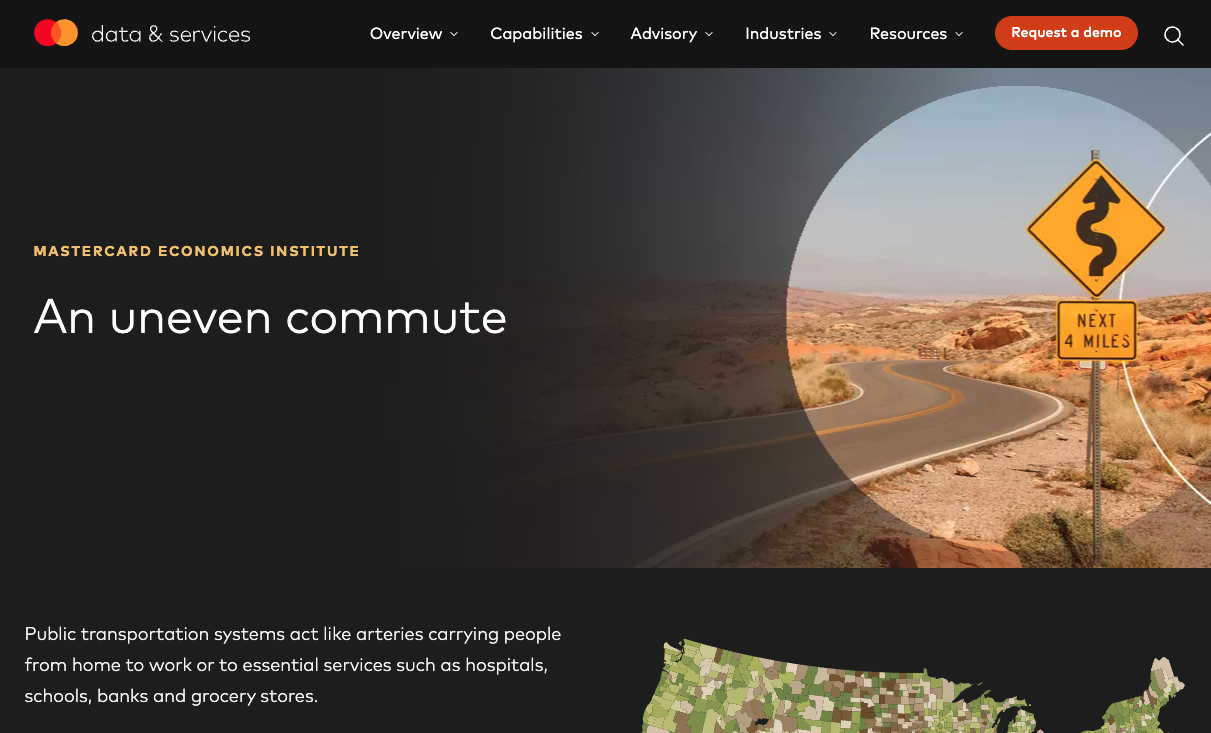
Consistent content distribution
Creating great editorial content is only half the battle for brands. To truly reap the rewards, that content needs eyeballs. That's why distribution is such a key part of these strategies. Companies must be strategic about getting their material in front of the right people.
Uploading an article on your website and hoping for the best doesn't make sense anymore. You must push that content out far and wide—social channels, industry publications, local news outlets, industry events, etc. Finding ways to amplify your message is crucial.
Moreover, audiences expect a regular cadence of new, valuable content to turn to. But it takes effort to maintain that rhythm over the long haul. Consistency is key. Presenting your perspective not as a fleeting fad but as a reliable resource cultivates familiarity with faith so that followers know when and where to find the viewpoints they value.
EWR Digital effectively distributes helpful content through multiple channels. Detailed website pages, published articles, and social media posts ensure its guidance remains accessible. They maintain a steady flow of valuable material by providing regular podcasts, blog articles, case studies, and thought leadership pieces. Covering diverse topics allows them to engage and educate people with varying passions.
Perhaps most importantly, EWR Digital upholds a consistent content cadence. Rather than one-off encounters, their rhythm cultivates ongoing relationships and keeps potential customers learning over the long term. This multifaceted approach strengthens their authority as a thought leader in the industry.
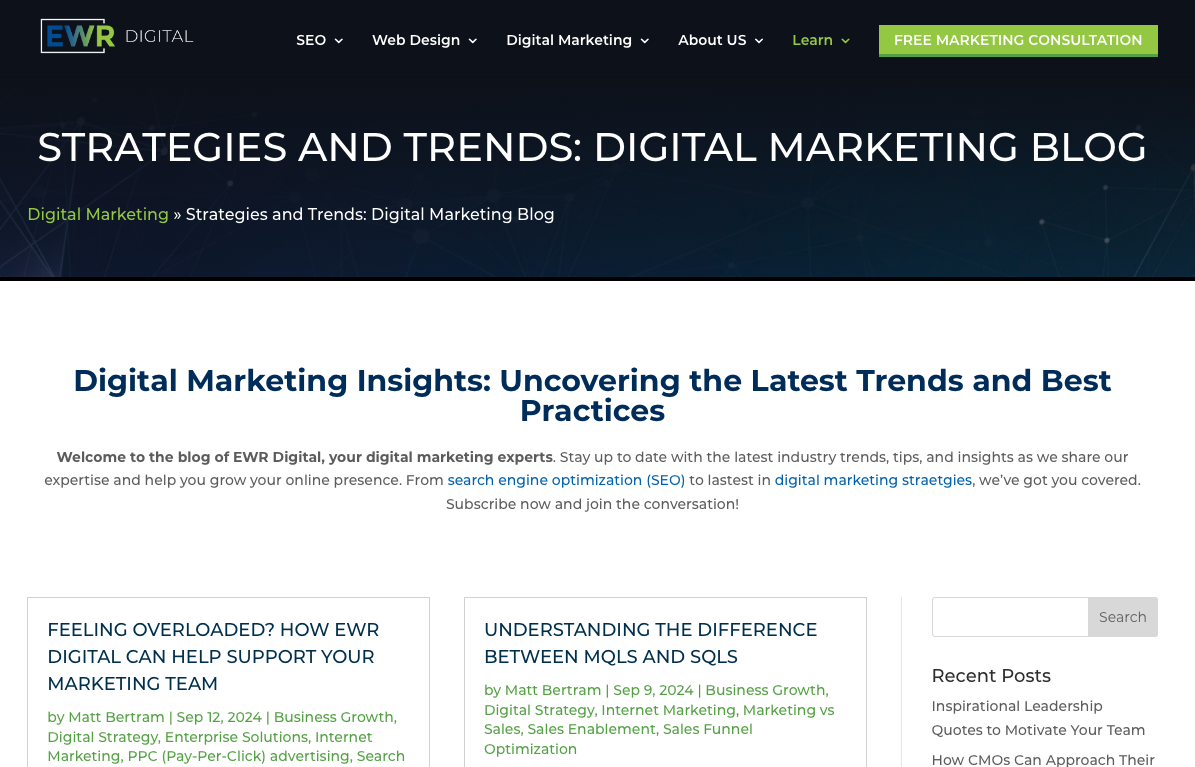
How to make sure your content gets seen
Creating great articles is vital for building trust, but it's not enough on its own. Posting on your website will only reach a smaller audience. The real power of brand storytelling is getting those stories in front of a wider audience.
Stacker makes a real difference here. By vetting and seamlessly sharing brand stories with publisher networks, Stacker creates an ecosystem where putting in the work to make good content is rewarded with natural visibility alongside mainstream reporting. Brands get a turnkey solution to deepen connections through large-scale editorial storytelling.
At the same time, publishers benefit as well—and without having to spend a fortune. Our library has engaging articles for you to choose from. Rather than overwhelming outlets, Stacker strategically surfaces the most applicable content at the right time based on what people want and what's happening in the market. Distribution stays transparent, so trust stays intact. Ultimately, we successfully bridge brands and media to foster authentic engagement through high-quality editorial content.
If you aim to strengthen communication through quality stories and trusted distribution methods that are fit for the future, Stacker has a solution worth exploring.
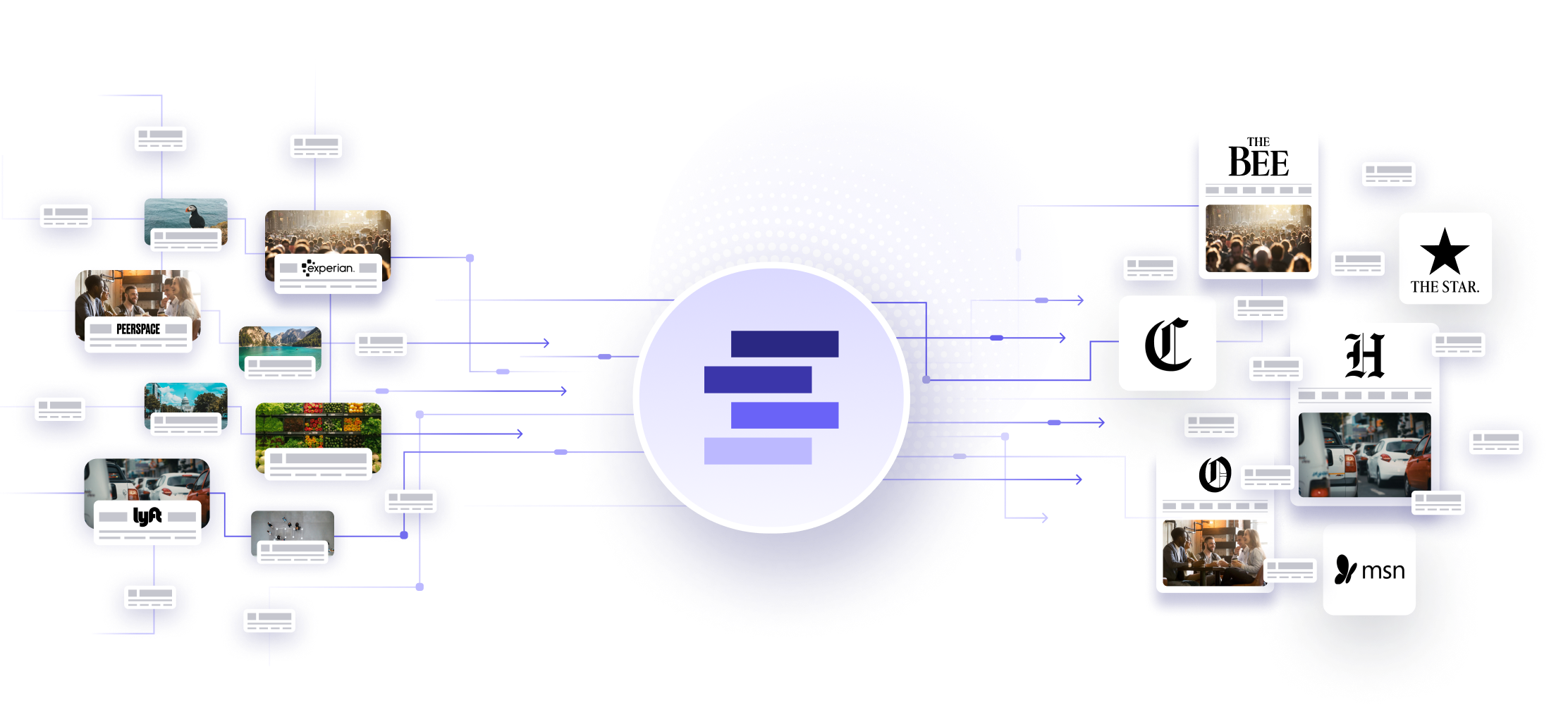
Doriane is Stacker’s Director of Marketing. She previously headed marketing departments in various companies, led a marketing agency for 7 years, and built a startup combining automated marketing workflows with a marketing services marketplace.
Photo Illustration by Stacker // Canva